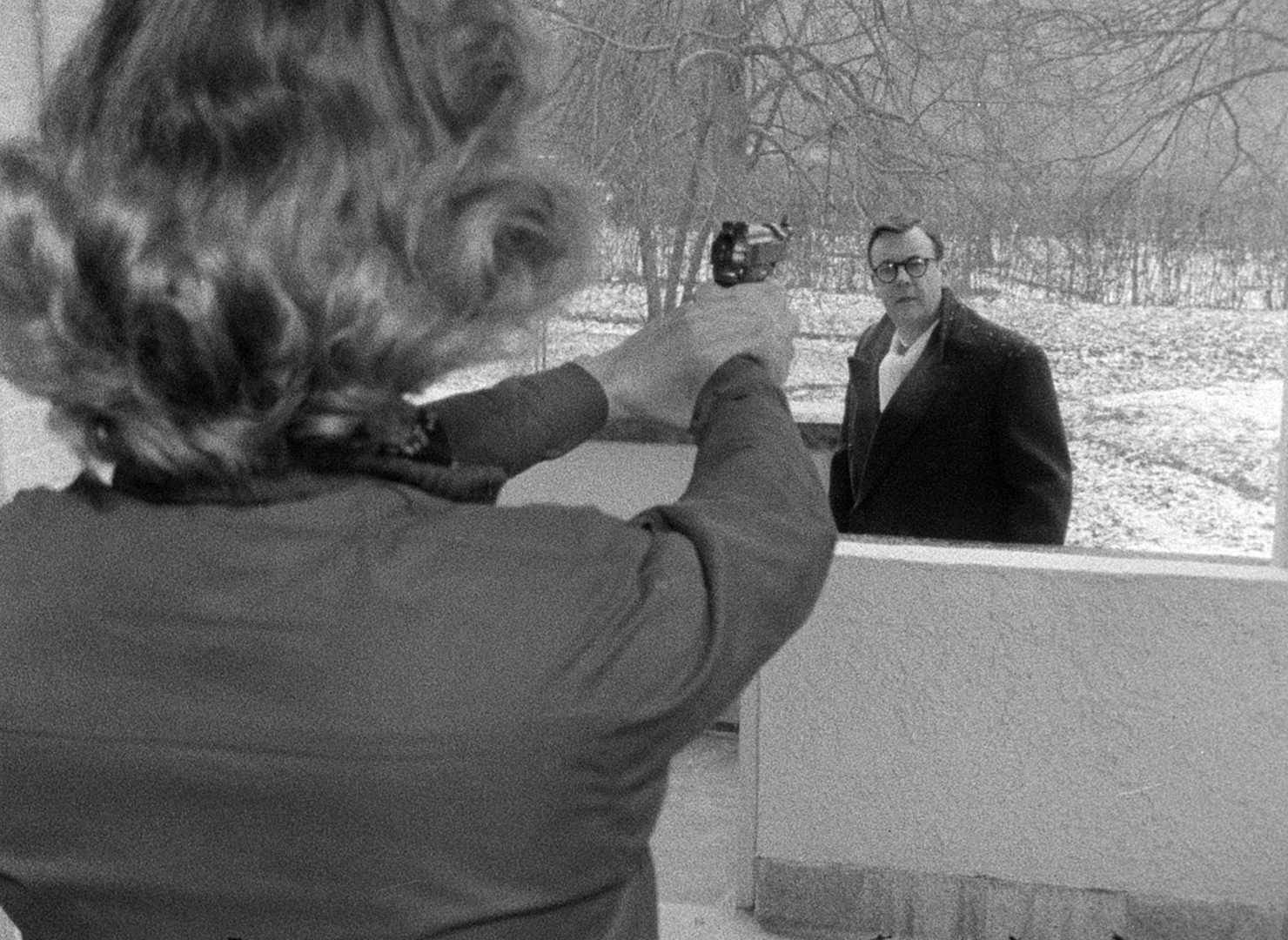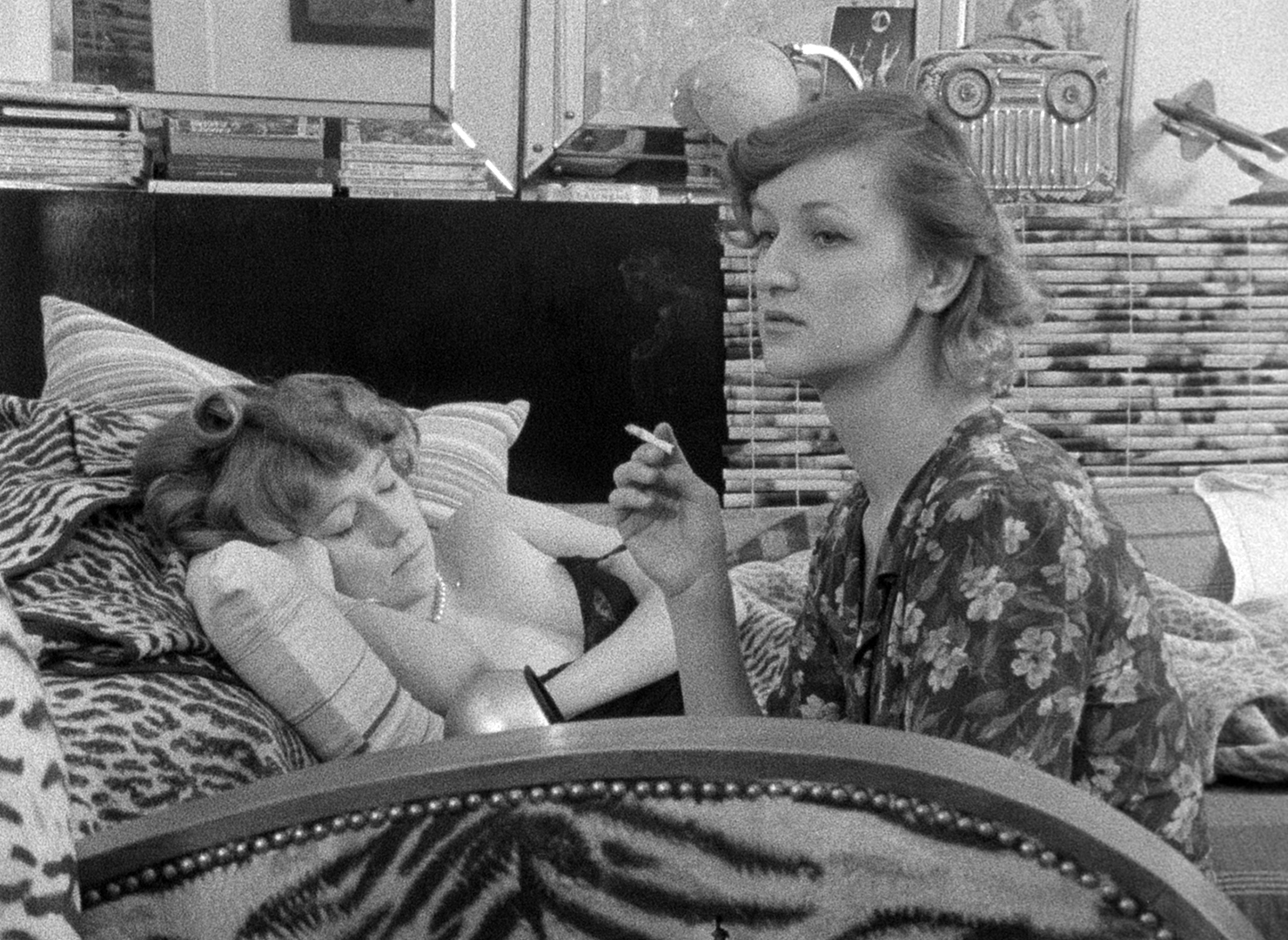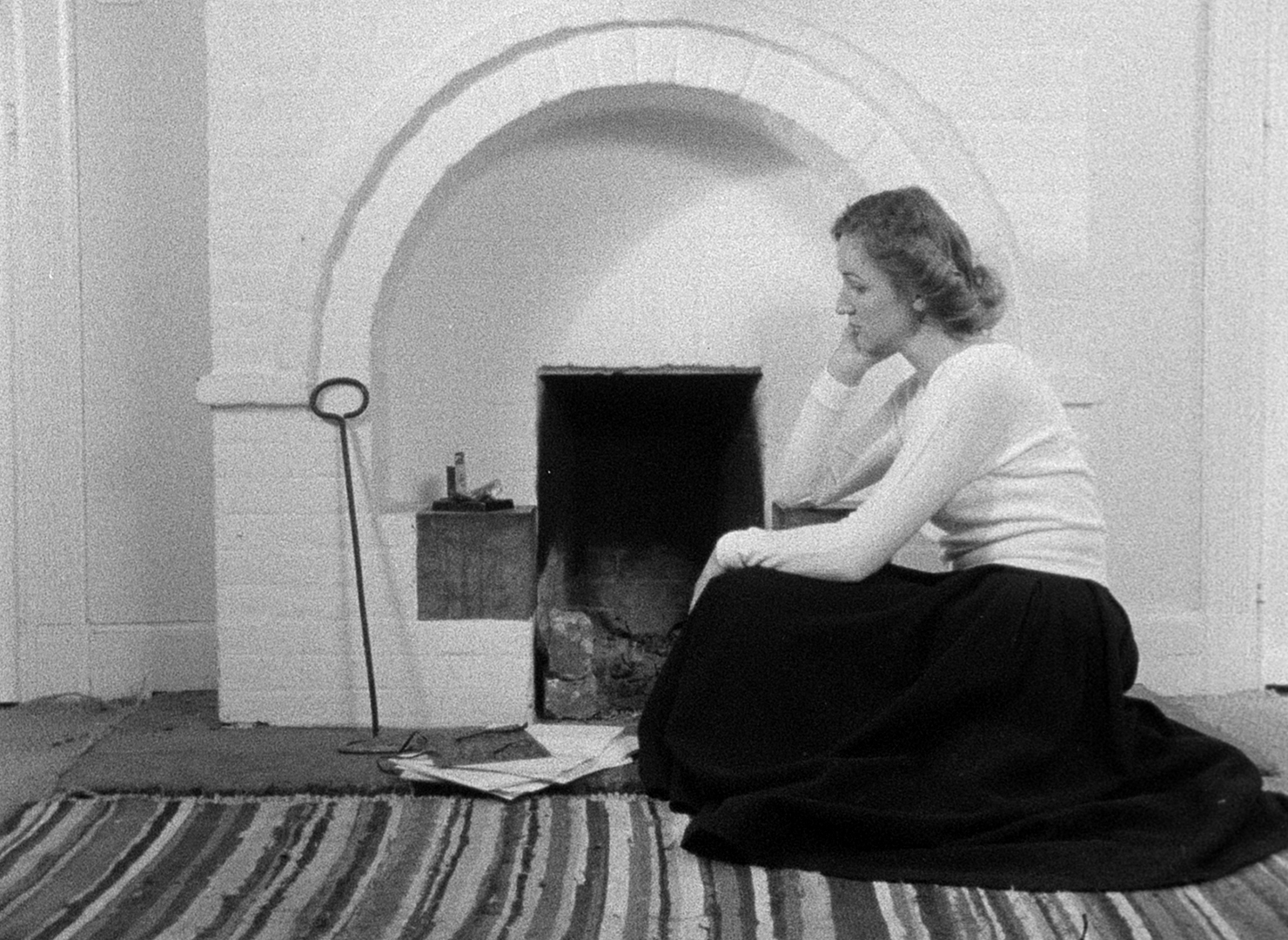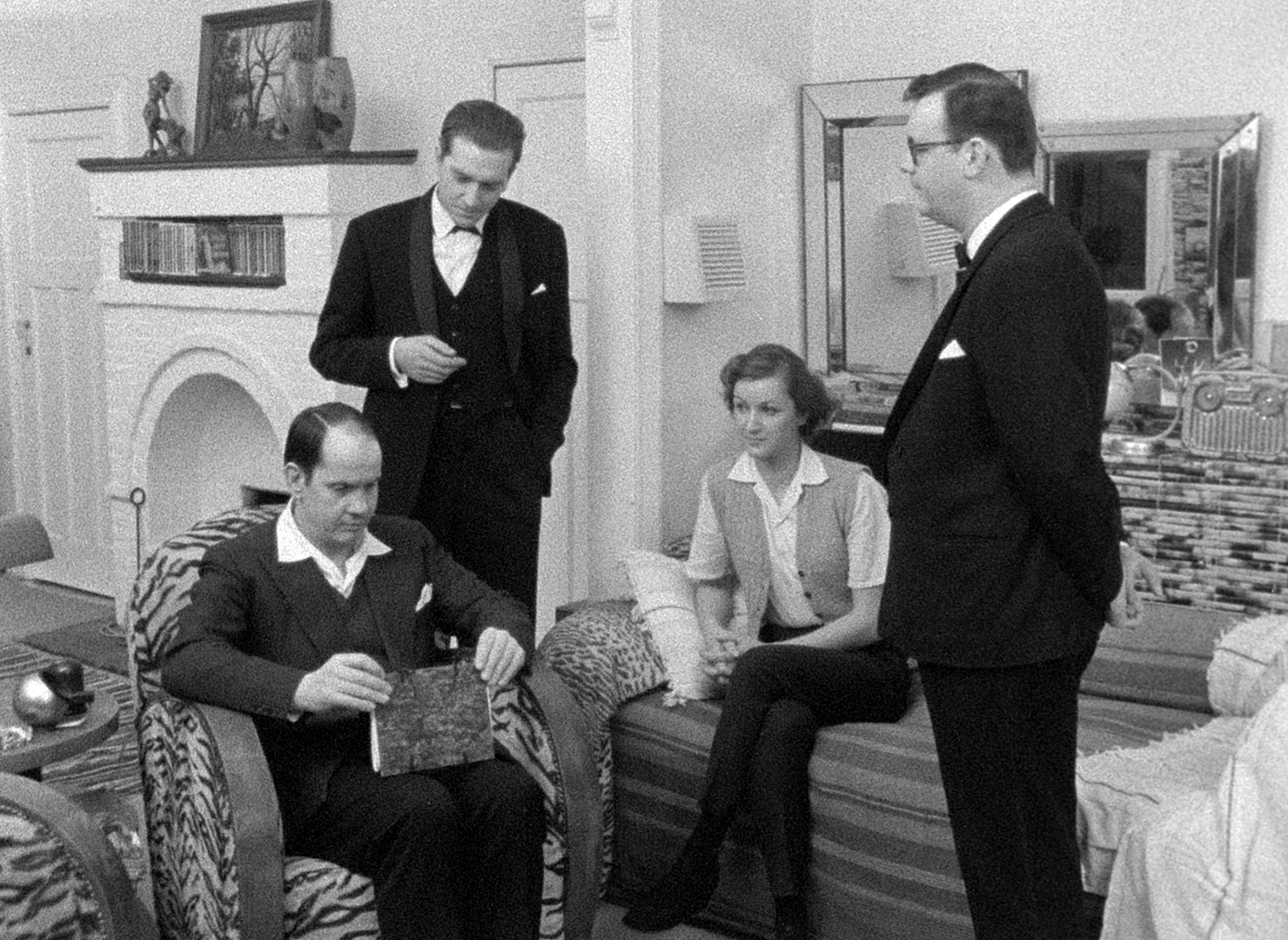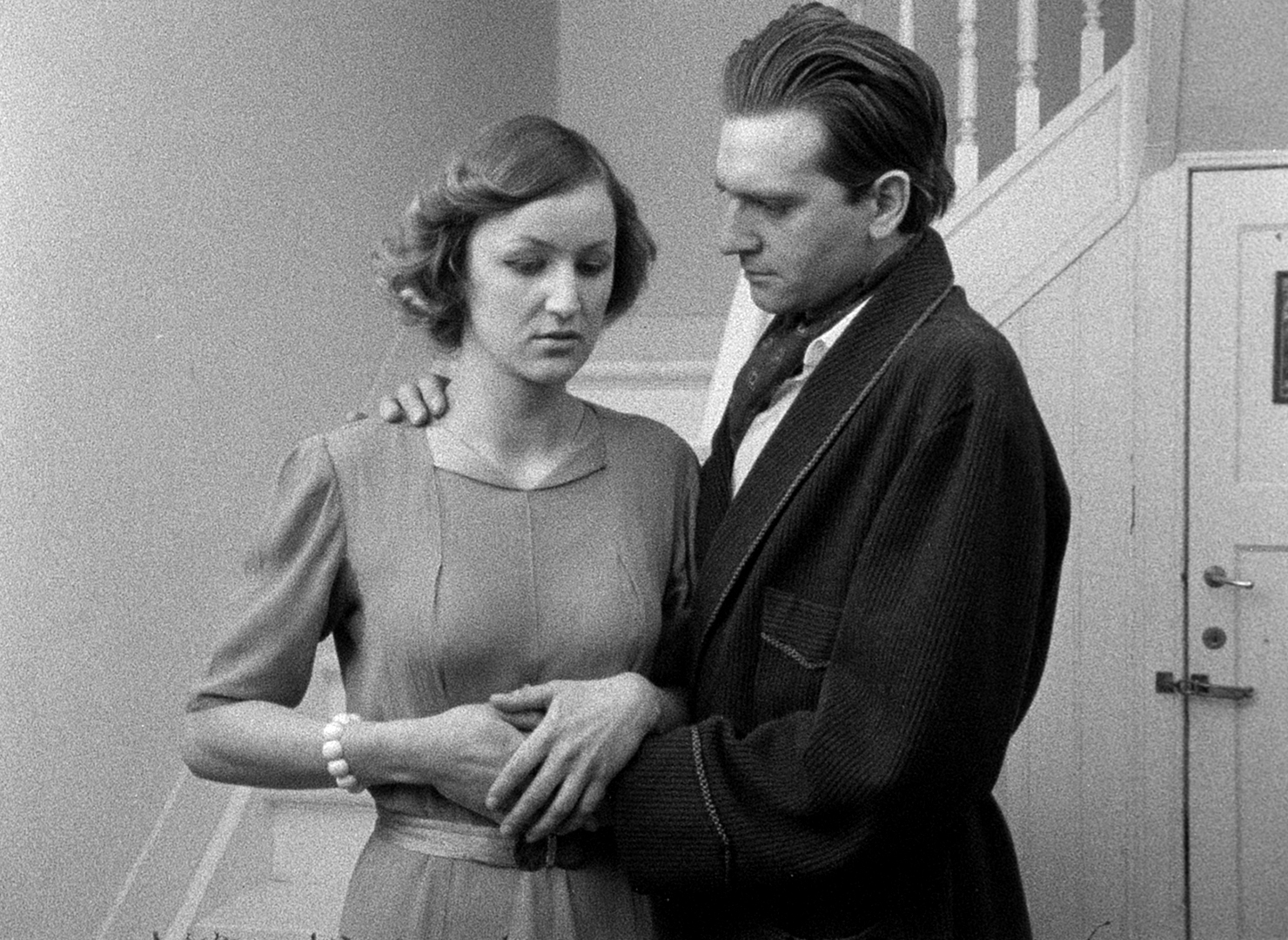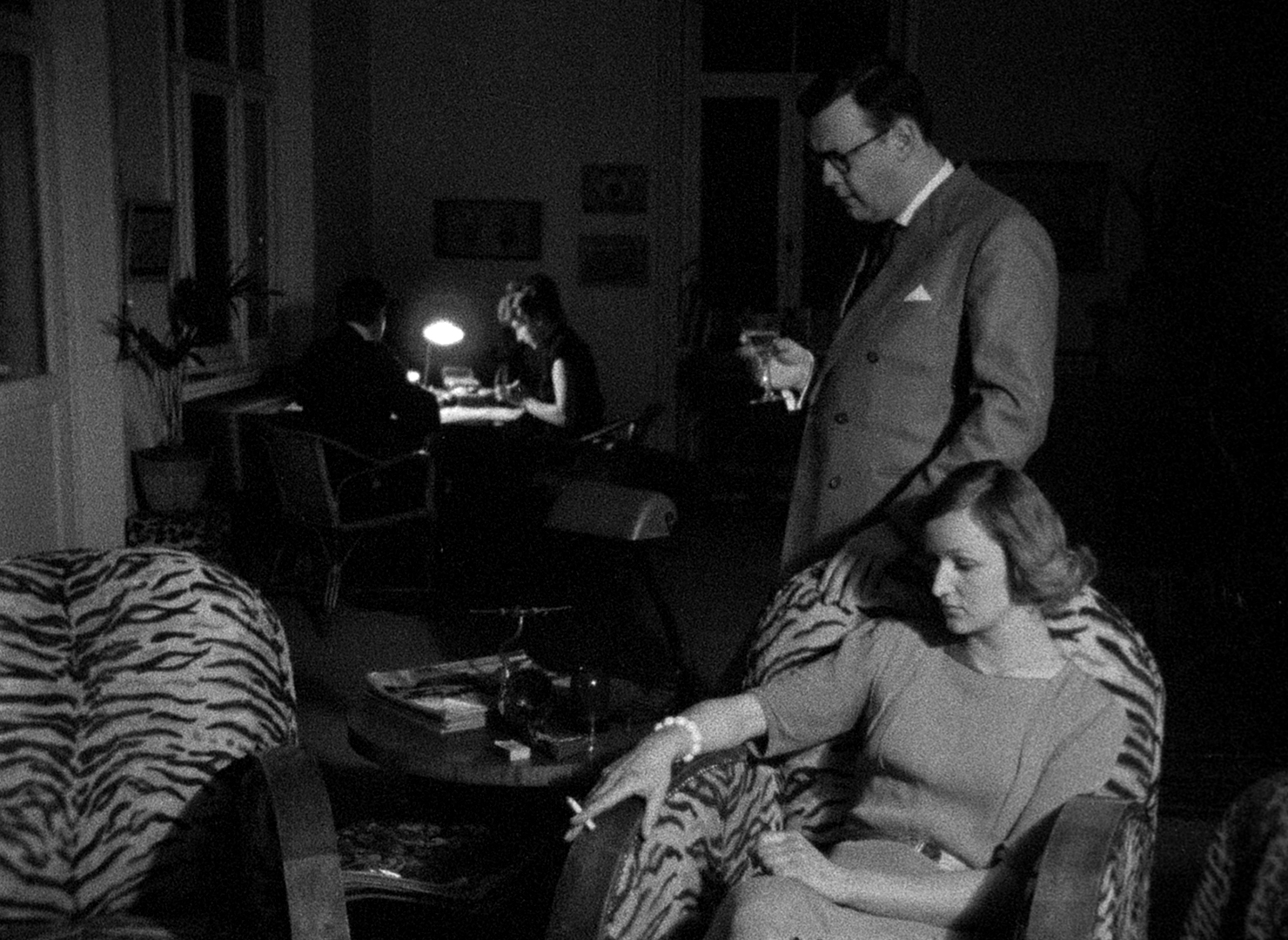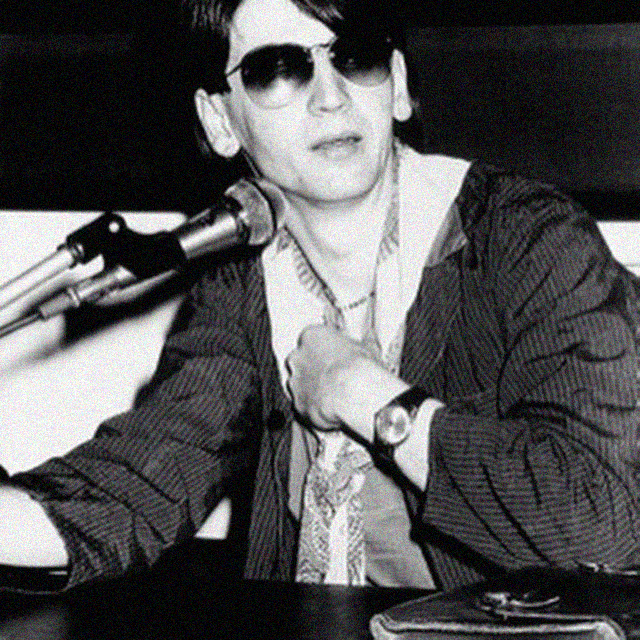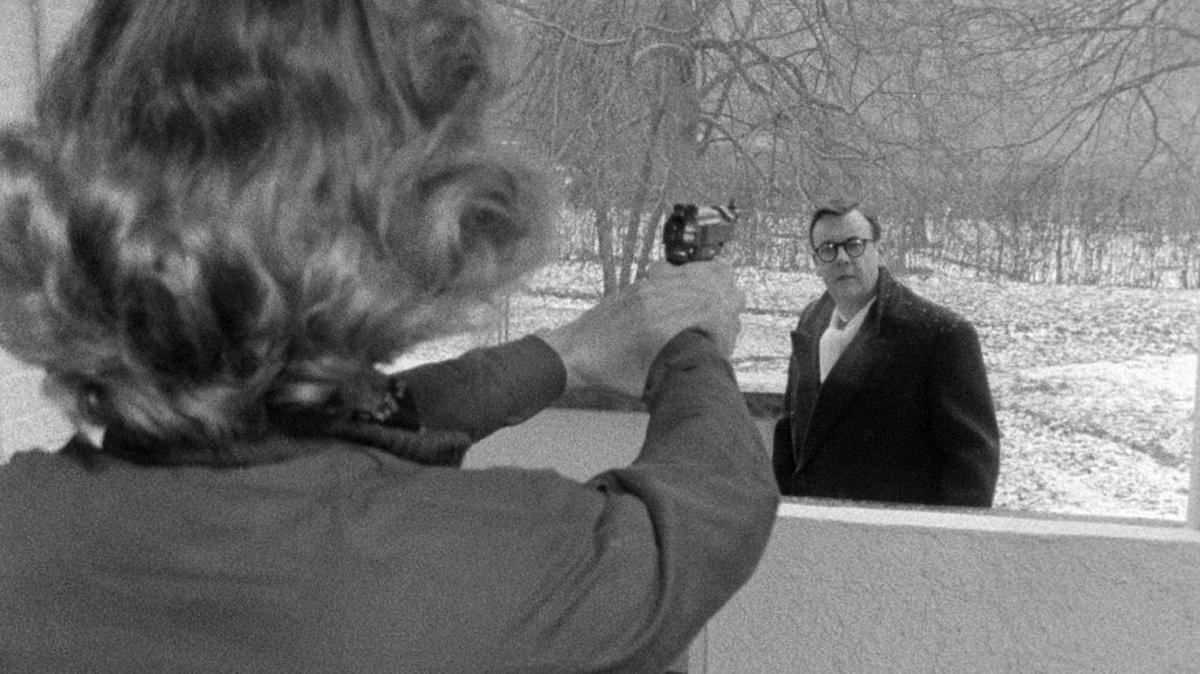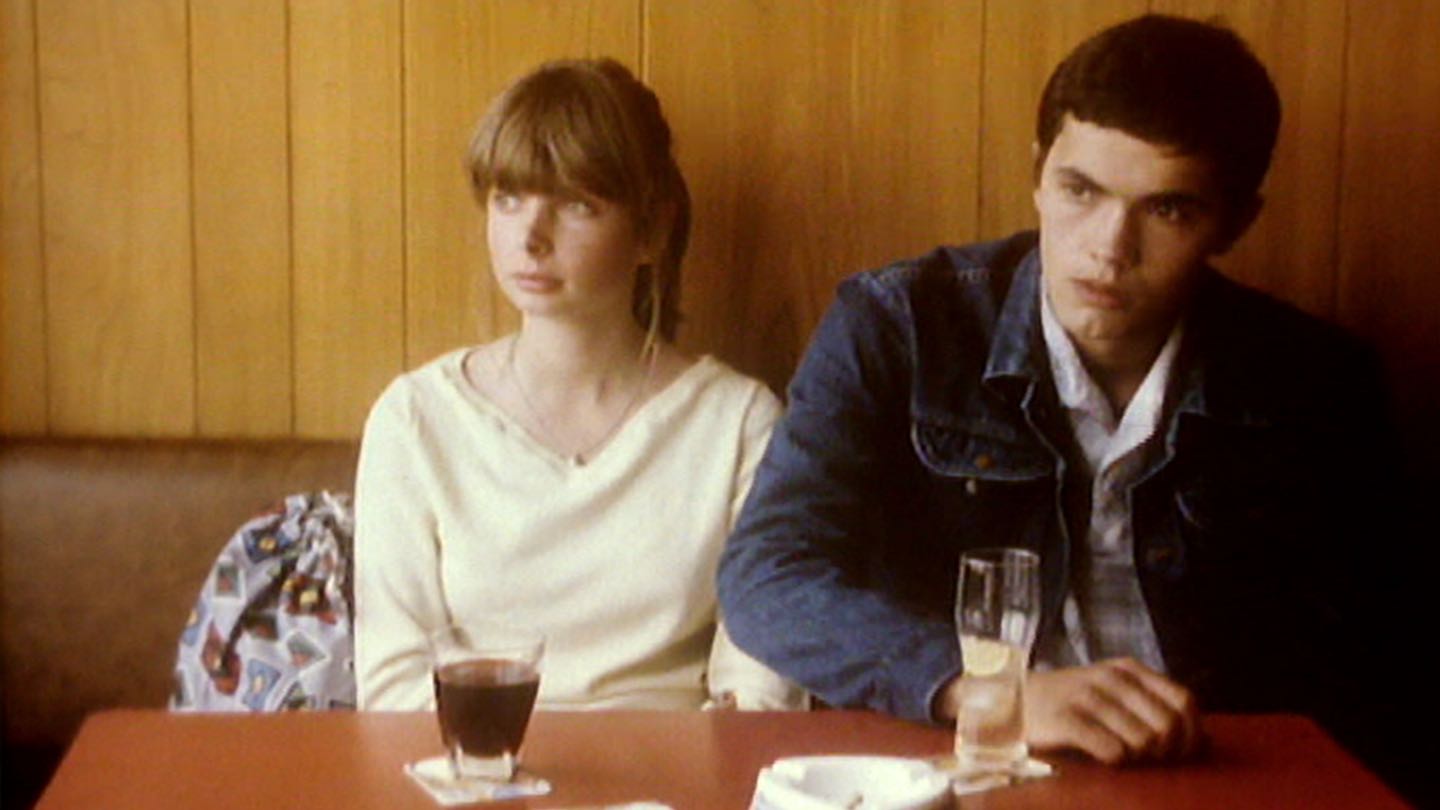Jan Decorte's second feature film is an adaptation of the play Hedda Gabler by Norwegian playwright Henrik Ibsen. Decorte moved the locus of action of Ibsen's realistic play from 1890 to 1950, twenty-eight years earlier than when the film was shot. The story begins when Hedda returns home from an overly long honeymoon with her newly wed but colourless husband Tesman. She is pregnant and will be courted by the writer Eljert Lövbor, an old lover who is about to break through with an exceptional novel of autobiographical quality. Decorte’s cinema is characterised by a sense of cinematic economy and a dramatised theatricality.
“It’s a sort of acrobatic distance here in Hedda Gabler, the suspense bating your breath (the acting is wonderful!) until it should be released into laughter. There’s a spluttering retelling of a wildly unlikely story, a kooky imitation of melodramatic conflicts, a travesty of critical unriddling, offering this extremely slow, calm countercurrent full of rapids and waterfalls.”
Dirk Lauwaert
